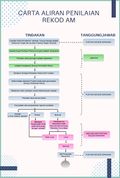Difference between revisions of "Records Management Division"
(→2. Records appraisal) |
(→2. Records appraisal) |
||
| Line 22: | Line 22: | ||
• Identify any records where the retention is no longer deemed necessary and recommend for disposal <br> | • Identify any records where the retention is no longer deemed necessary and recommend for disposal <br> | ||
</DD> | </DD> | ||
| + | |||
| + | <br><br><br> | ||
==3. Disposal of records== | ==3. Disposal of records== | ||
Revision as of 12:05, 9 December 2019
Records Management Division are responsible to provide guidelines for the development of a comprehensive records management programmes, to address sound records management programmes requirements, and to offer strategies to transcend records management technology and to ensure the integrity of conventional and electronic records.
Contents
Records Management Division Services
The Records Management services includes providing advice and guidance on all aspects of records management to government departments; review and approved records including drawing up schedules for transfer to archive and disposing of non-active records; identify and approve semi-active and non-active records for permanent preservation; and regulate awareness programmes on management of records.
1. Records Management awareness programmes
• To ensure the departments and the agencies under Sarawak State Government properly manage public records before it reaches 25 years old as cited in Sarawak State Library Ordinances Section 14 (1)(d)
• To provide consultation and guidelines pertaining to public records transfer and disposal
• Provide advice and guidance on all aspects of records management to government departments and other public bodies on the management of records through briefing and talk
2. Records appraisal
 |
• To acquire records which in the opinion are or are likely to be of archival value
• Identify any records where the retention is no longer deemed necessary and recommend for disposal
3. Disposal of records
• Regulating the disposal process of public records by government agencies
4. Provide training and workshops on records management
• To facilitate best practice in records management in government agencies
• To equip government agencies staff with a range of skills required for management of records throughout their life cycle